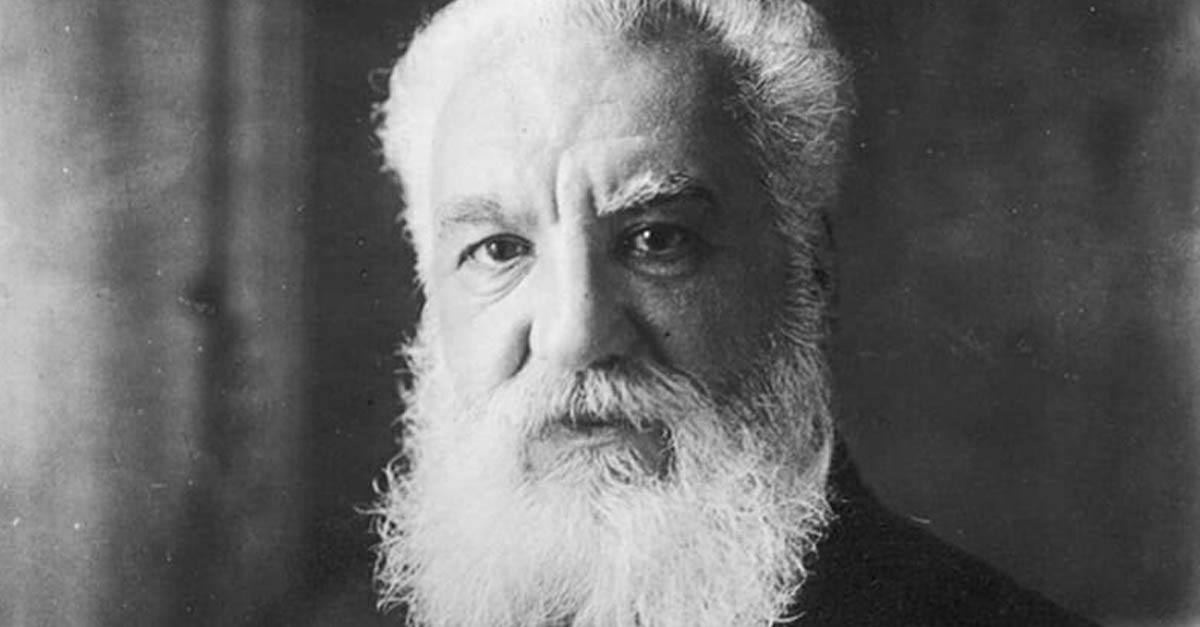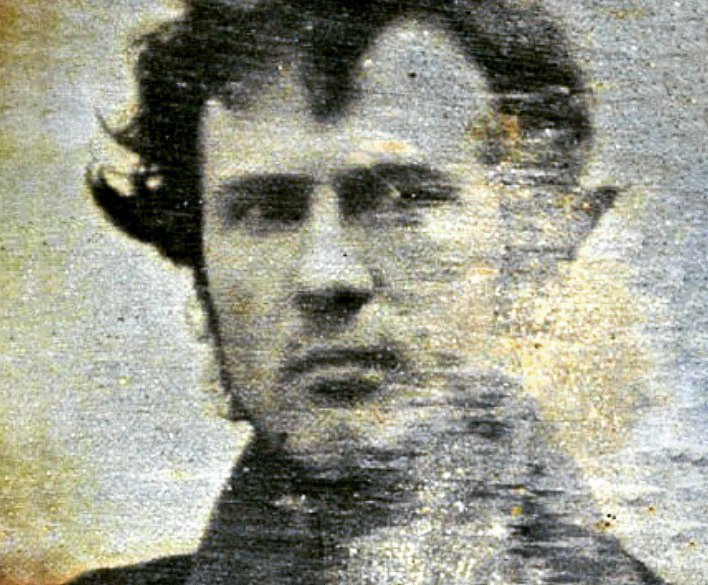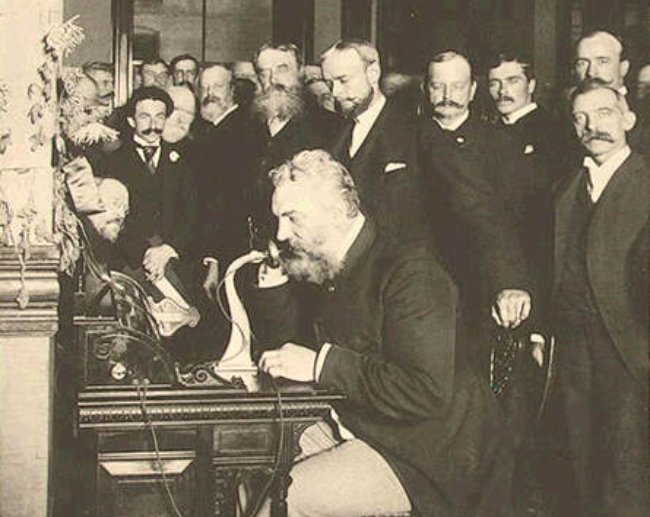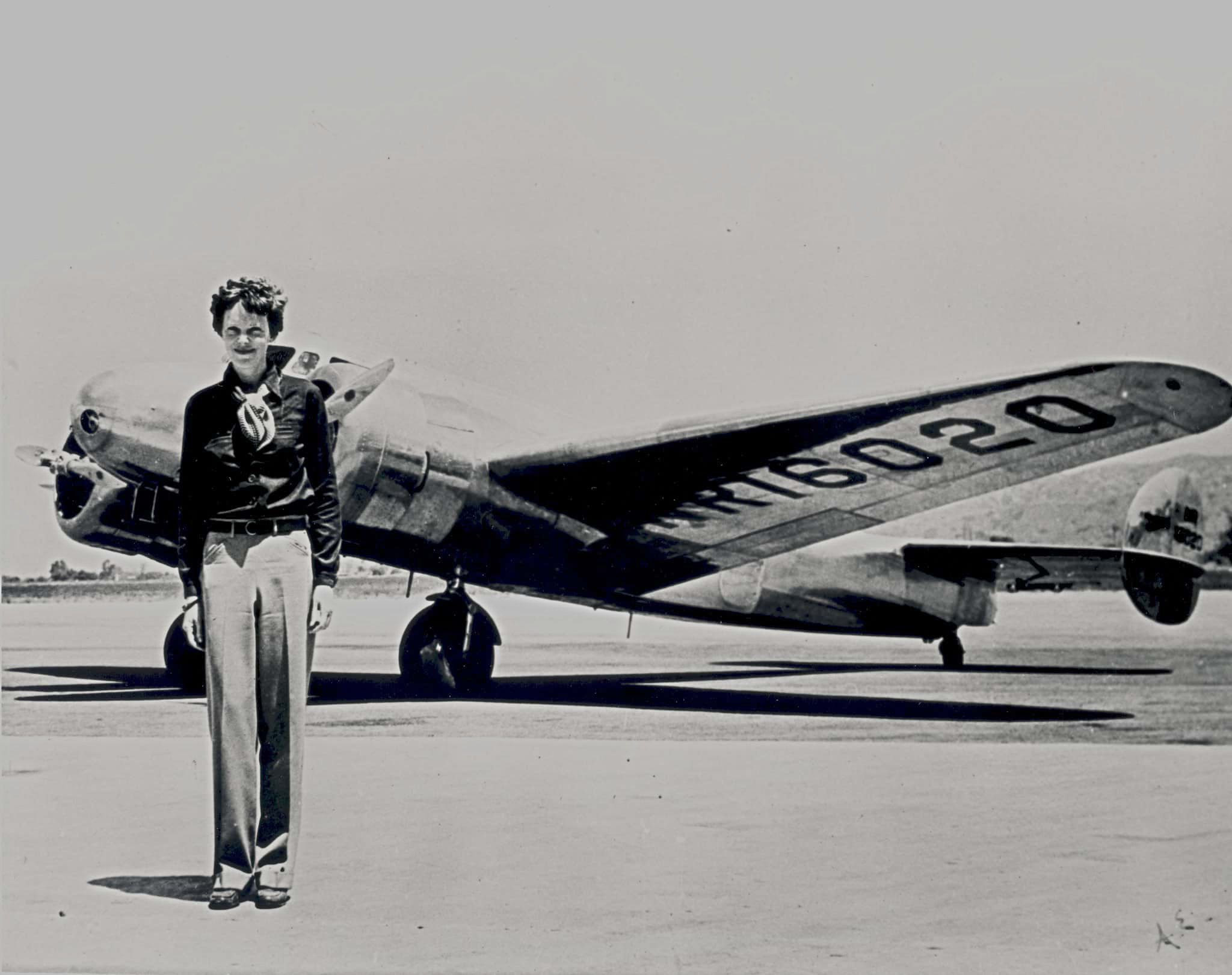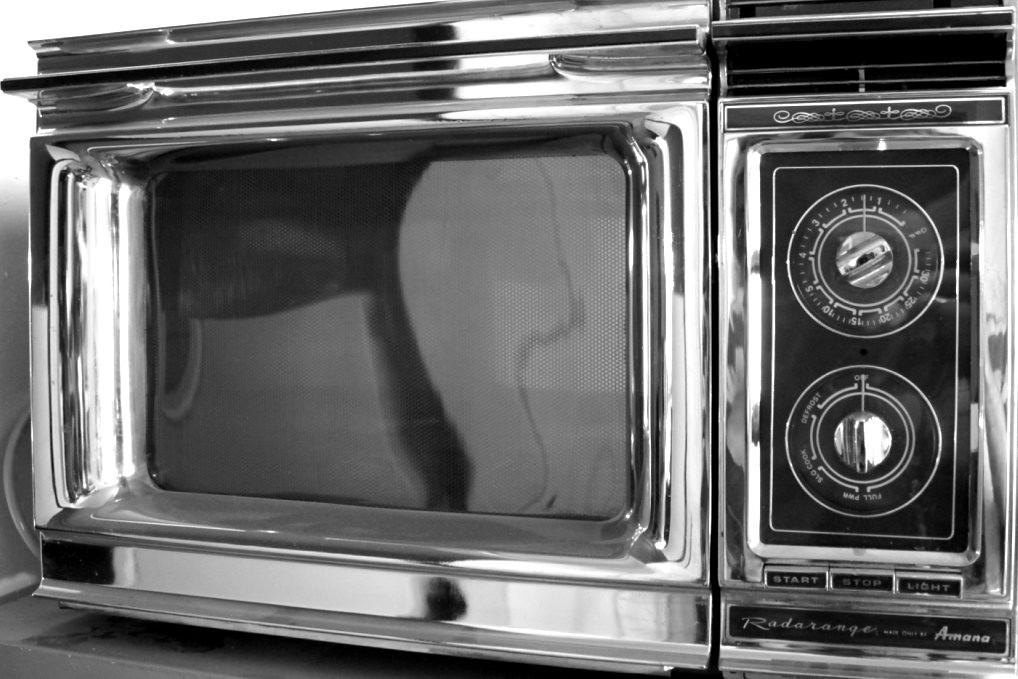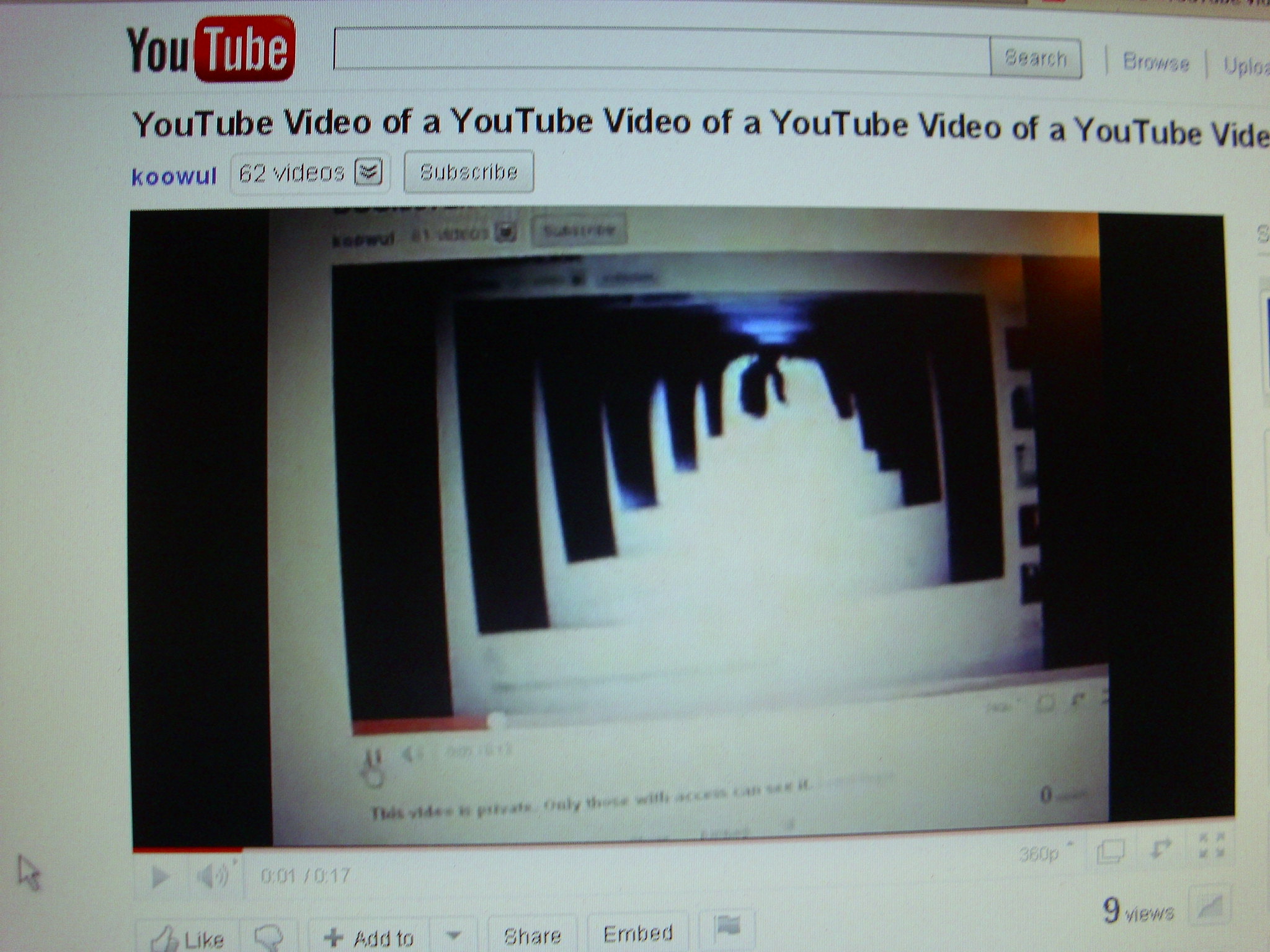Someone Had To Be First
Everything—literally everything—was new at some point in history. Someone looked at a horse one day and thought, “Hey, I bet that would be a good way to get around”, and up they went. But for every common sense historical first, there is an uncommon sense historical first that just has us marveling at human ingenuity.
First Rock (Circa 4 Billion YA)
Okay, so this one doesn’t really have anything to do with humans, but it’s definitely an interesting one to consider. The Earth started out as a ball of gas, plasma, and, eventually, molten rock. At some point, that molten rock had to cool down into a solid rock, and scientists estimate that it first happened over 4 billion years ago!
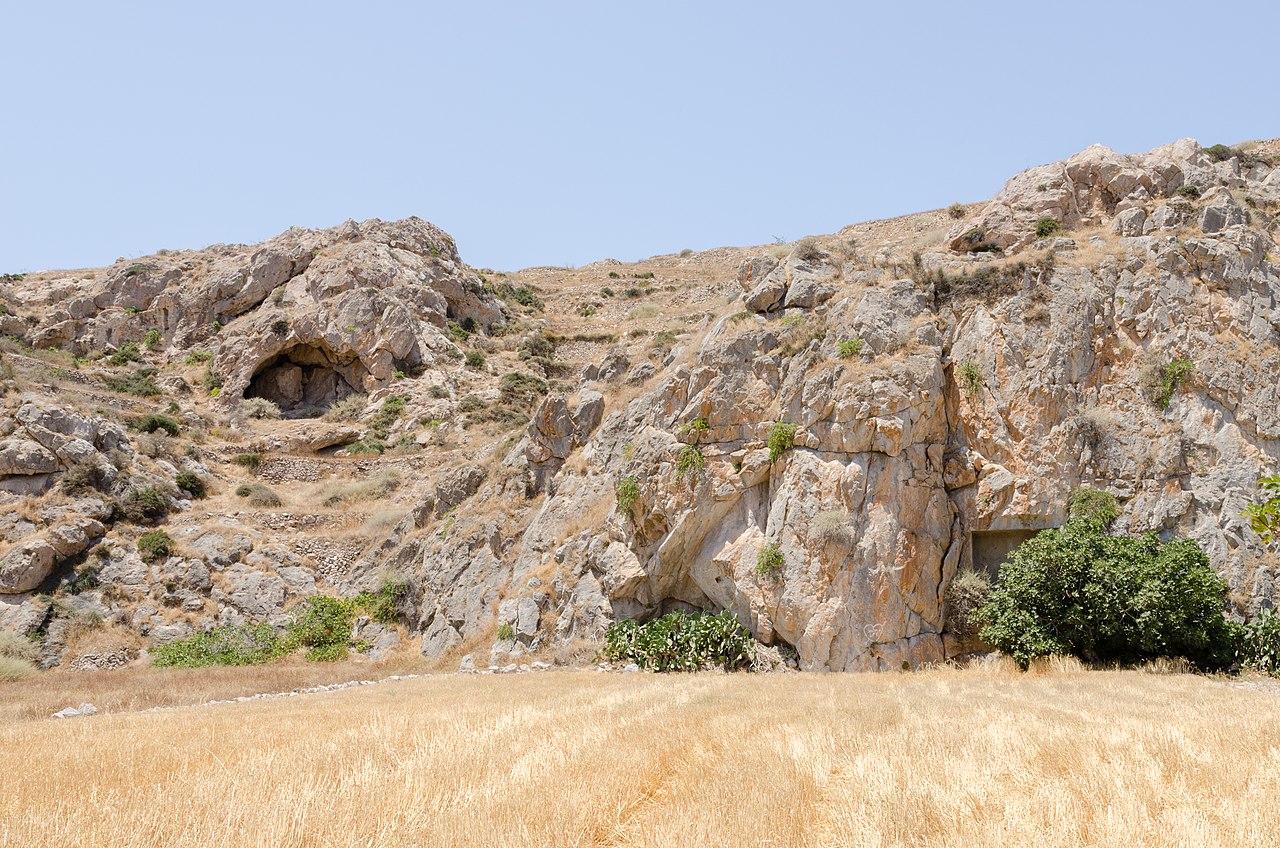 Norbert Nagel, CC BY-SA 3.0, Wikimedia Commons
Norbert Nagel, CC BY-SA 3.0, Wikimedia Commons
First Marathon Runner (490 BCE)
This is only sort of true. We get the modern idea of the marathon from Pheidippides, a messenger in Ancient Greece. The marathon is called a marathon because Pheidippides ran a message 25 miles, from the battle of Marathon to Athens, delivering news of Greece’s victory in the fight.
First Hourglass (8th Century CE)
If you’re someone who suffers from clock-watching at work, you can lay the blame for the popularity of timepieces on an 8th-century French monk named Liutprand. These early timepieces were vital for ocean voyages, as they worked regardless of weather or waves.
First Book Ever Printed (1440)
When Johannes Gutenberg invented the printing press, what do you think the first book printed was? It’s a pretty easy answer: The Bible. Until the Harry Potter series came along in the late 90s, the Bible was the most popular book in history, so it makes sense that it was the first one printed too.
 Kpalion, CC BY-SA 4.0, Wikimedia Commons
Kpalion, CC BY-SA 4.0, Wikimedia Commons
First Published World Map (1570)
In the days before GPS and Google Maps, people used a strange, foldable paper device called a map to find their way from one place to another. Way back in 1570, in a book called Theatrum orbis terrarum, Abraham Ortelius provided navigators with the first full map of the Earth.
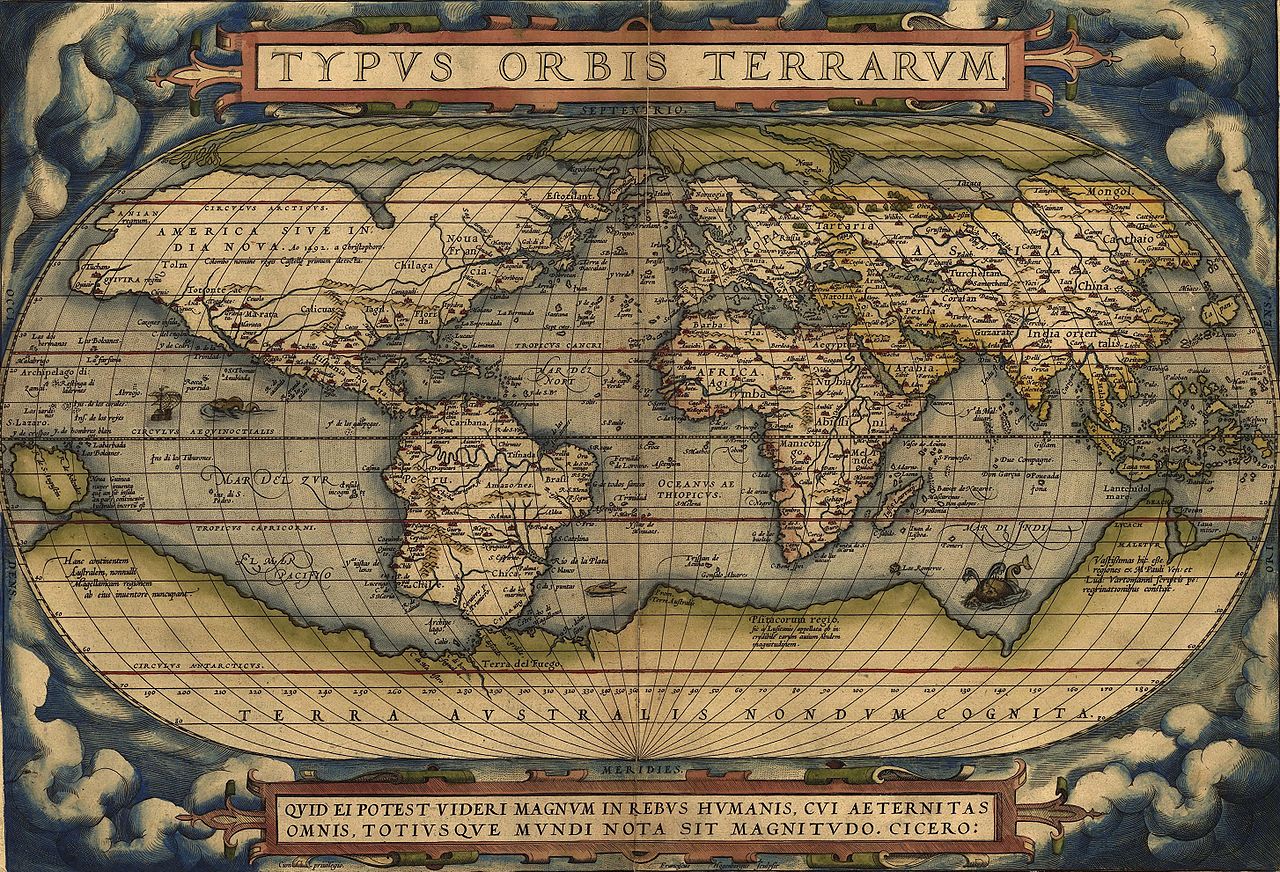 Abraham Ortelius, Wikimedia Commons
Abraham Ortelius, Wikimedia Commons
First Baby Born In The American Colonies (1587)
Have you ever wondered who the very first American was? And we’re talking settler Americans here, not the people who were here for thousands of years before the English, French, and Spanish. Virginia Dare was born on August 18, 1587, in a newly established colony on the east coast of North America.
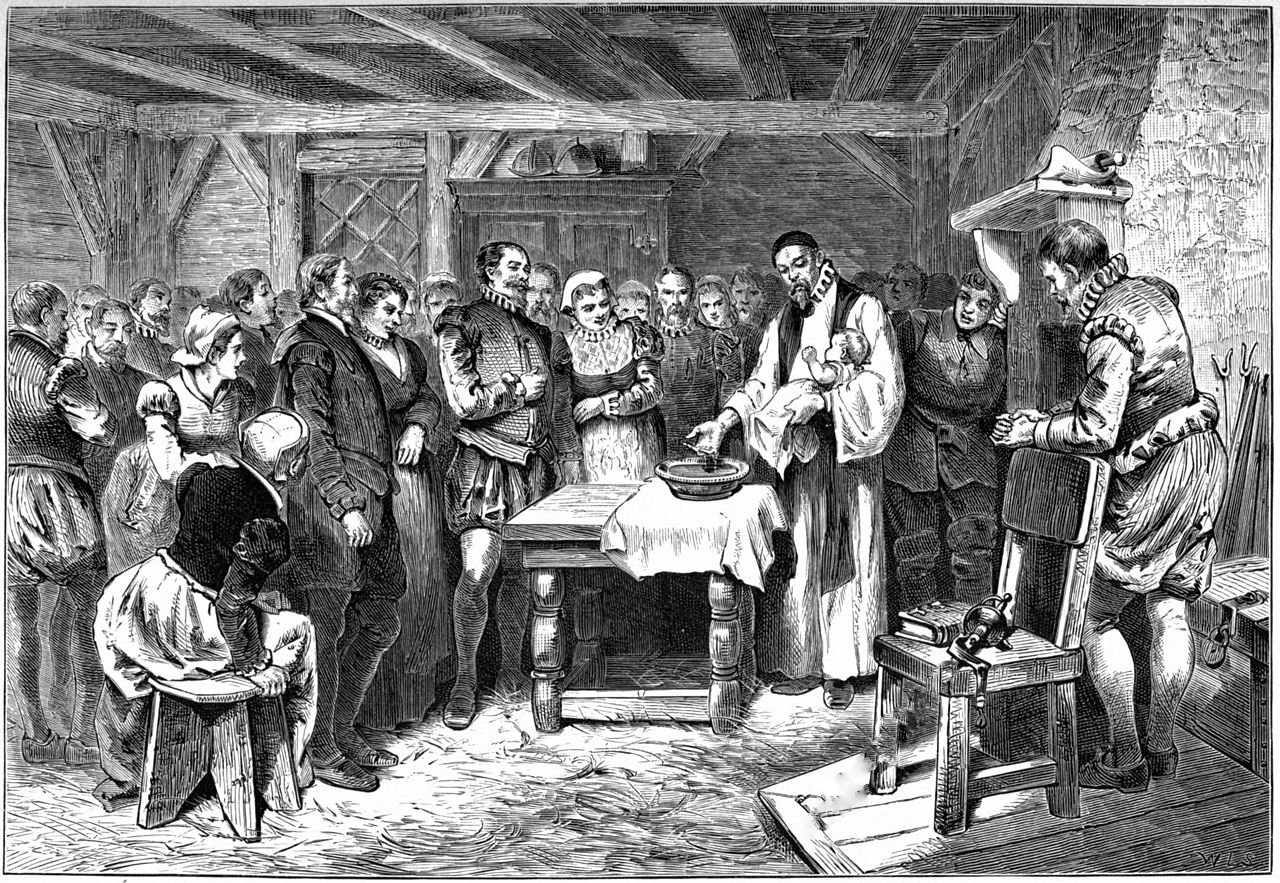 William Ludwell Sheppard, Wikimedia Commons
William Ludwell Sheppard, Wikimedia Commons
First Humans To Fly (1783)
Humans have been flying for over 240 years!! That’s amazing. While the Wright Brothers are credited with the first powered flight, the Marquis d’Arlandes and Pilatre de Rozier were the first aerial sojourners. Their 1783 hot air balloon trip lasted 20 minutes, which honestly sounds a lot nicer than the 6–7 hour flights we all tend to take now.
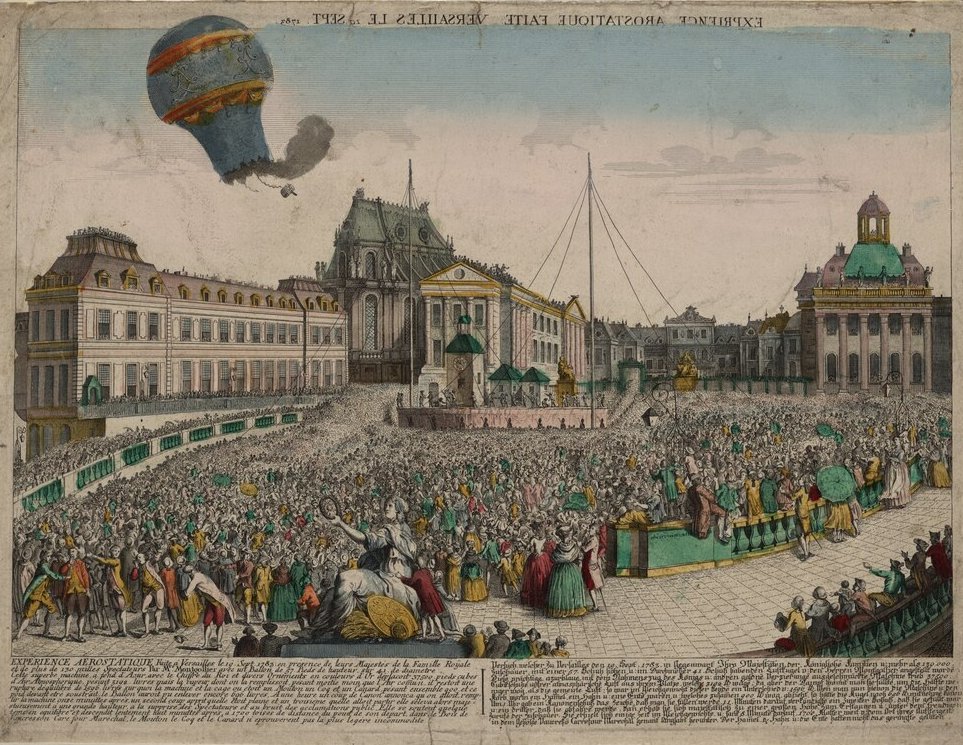 Unknown Artist, Wikimedia Commons
Unknown Artist, Wikimedia Commons
First Photograph (1826)
Long before the age of infinite digital photographs, photography was a process that relied upon physical media and chemical processes. Frenchman Joseph Nicéphore Niépce is credited with having taken the first true photograph, using a pewter plate and asphalt to achieve the first of billions of blurry landscape photos throughout history.
 Castelbianco, Wikimedia Commons
Castelbianco, Wikimedia Commons

History's most fascinating stories and darkest secrets, delivered to your inbox daily.
First Selfie (1839)
A mere 13 years after the first photograph, the tradition that is now the mainstay of social media got started: the selfie! Robert Cornelius’s 1839 photo is the first documented evidence of someone standing in front of a camera and taking their own picture. Cornelius probably had to hold his pose for minutes, rather than the seconds it takes us.
First Roll Of Toilet Paper (1857)
Happy 171st birthday to the toilet paper roll! When we think of important inventions and discoveries, this one isn’t likely at the top of most lists, but can you imagine life without TP? Inventor Joseph Gayetty created this bathroom staple, calling it “The Greatest Necessity of the Age”.
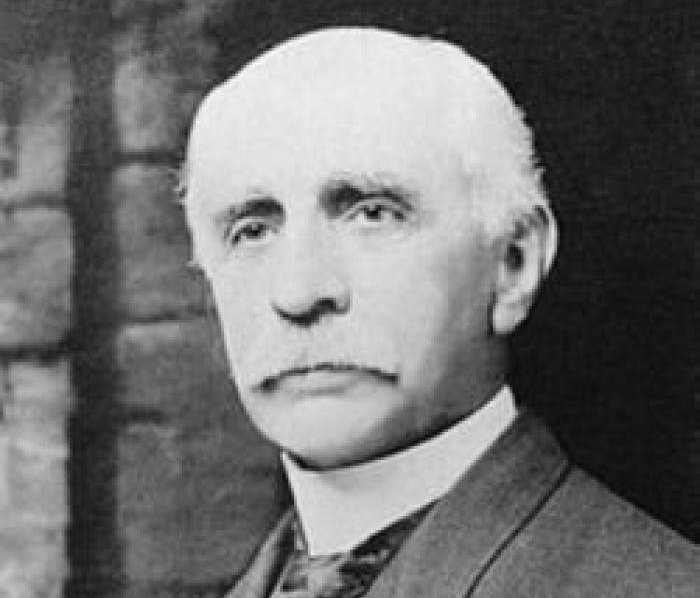 Unknown Author, Wikimedia Commons
Unknown Author, Wikimedia Commons
First Observed Solar Flare (1859)
Solar flares have been happening probably for the entire lifetime of the Sun, many billions of years. But it’s only relatively recently in the Sun’s life that we’ve been able to see them. Astronomer Richard Carrington saw the first, and so far the strongest, solar flare ever recorded way back in 1859.
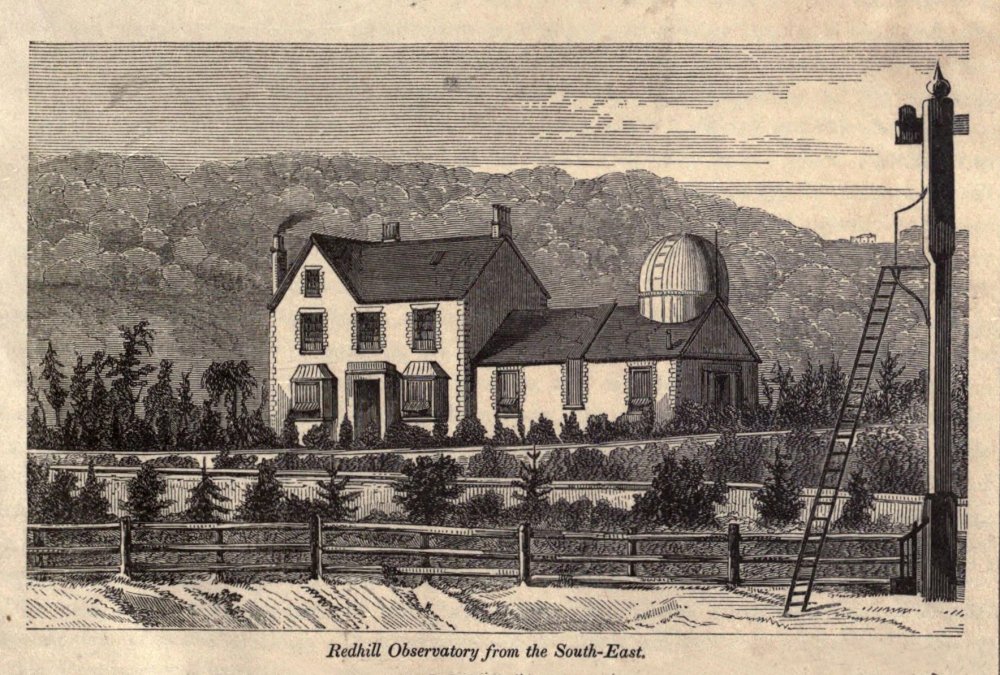 Unkwnon Artist, Wikimedia Commons
Unkwnon Artist, Wikimedia Commons
First Voicemail (1860)
Although this message was recorded in 1860, it was only in 2008 that scientists managed to play back the recording. Thankfully, it wasn’t an emergency call or a time-sensitive message. Edouard-Leon Scott de Martinville sang “Au Clair de la Lune” into a device that inadvertently recorded it.
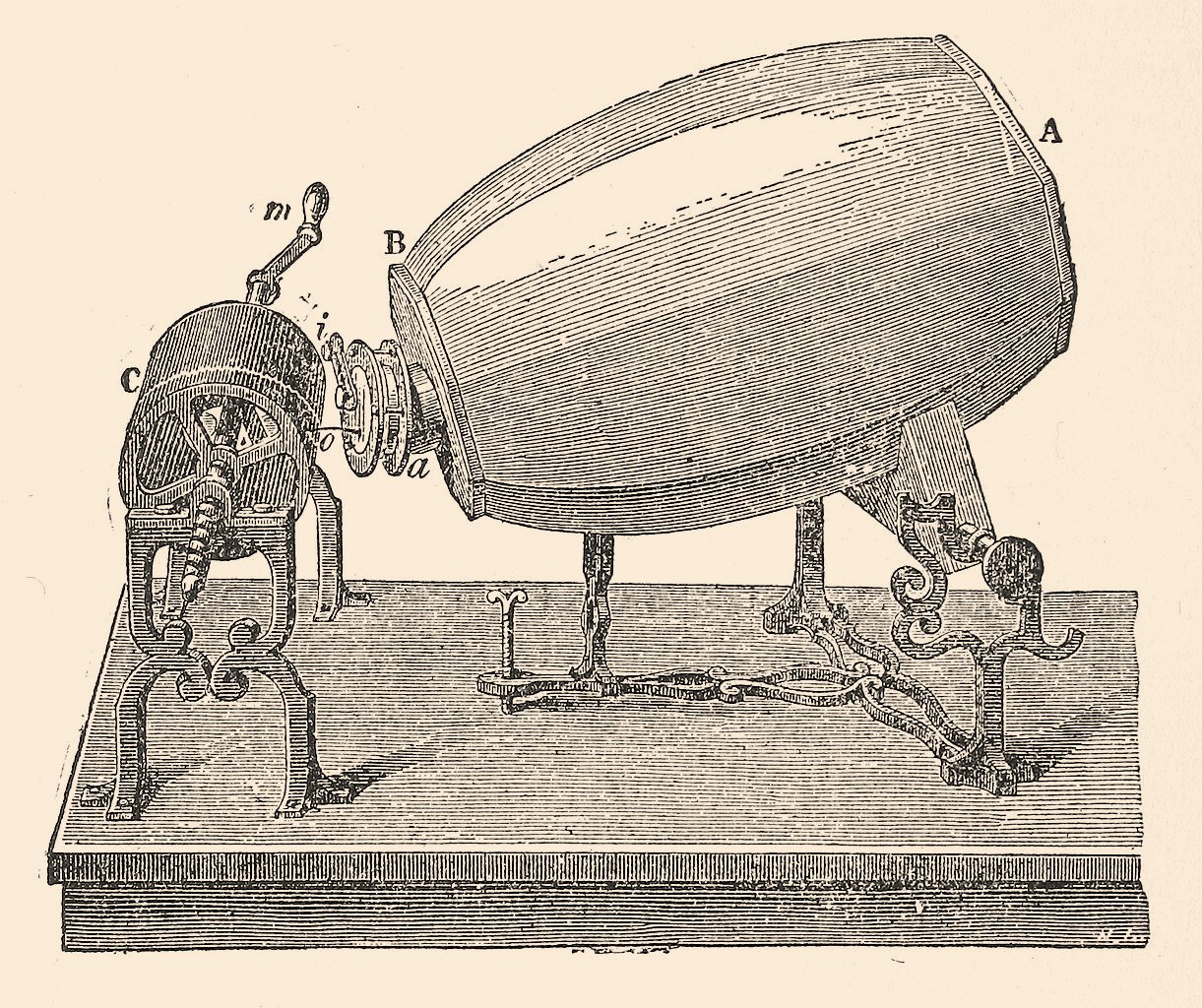 Rolt-Wheeler, Francis, Wikimedia Commons
Rolt-Wheeler, Francis, Wikimedia Commons
First Telephone Call (1876)
Alexander Graham Bell, whose last name will forever be associated with telephone companies, was the first person to ever make a phone call. He called his assistant in the next room. The first words ever transmitted by telephone were “Mr Watson, come here”.
First National Park (1872)
We take national parks for granted nowadays, but they haven’t always existed. Ulysses S Grant brought the first, and one of the most famous, national parks into existence in 1872 when he opened Yellowstone and its array of natural wonders up to the general American public.
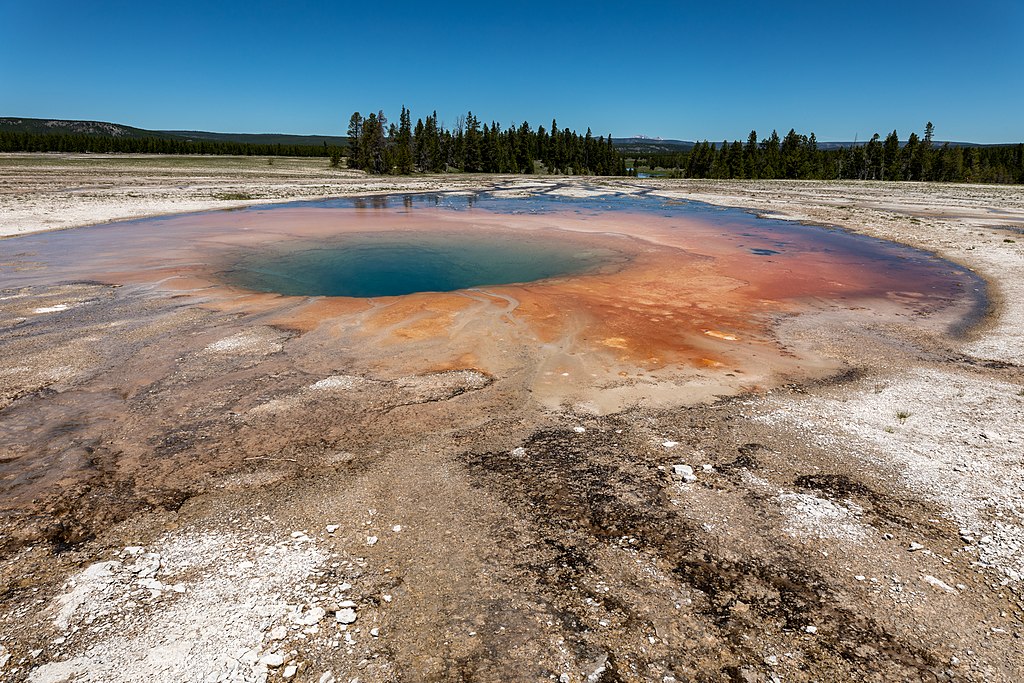 Dietmar Rabich, CC BY-SA 4.0, Wikimedia Commons
Dietmar Rabich, CC BY-SA 4.0, Wikimedia Commons
First Skyscraper (1884)
Incredibly tall buildings are a mainstay of cities nowadays, but it wasn’t always so. Imagine living in a city where buildings were maybe three stories tall. In 1884, the Home Insurance Building in Chicago, a whopping 10 stories, became the first official skyscraper. The sky, we guess, was a lot closer then.
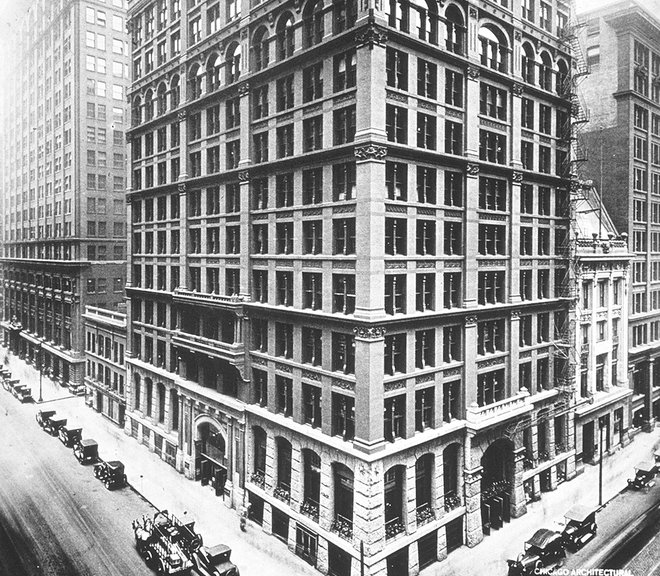 Chicago Architectural Photographing Company, Wikimedia Commons
Chicago Architectural Photographing Company, Wikimedia Commons
First Olympic Gold Medal (1904)
The illustrious Gold Medal is synonymous with the Olympics. But the coveted award wasn’t always given for first prize in an event. The 1904 Olympics were the first to feature the medal, actually cast out of solid gold. By 1912, citing costs, the gold medal was instead cast in silver and coated in gold.
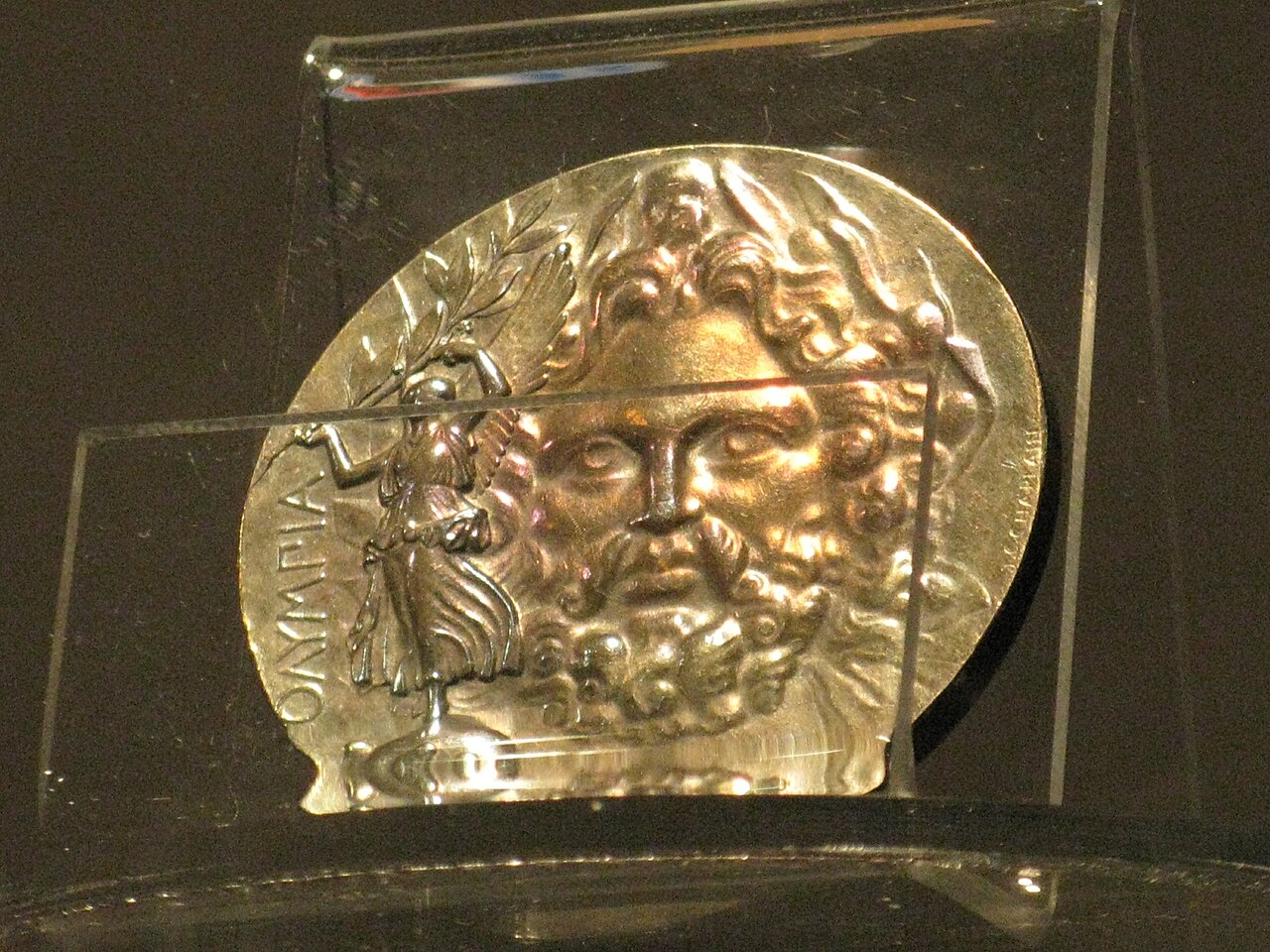 Yoho2001, CC BY-SA 3.0, Wikimedia Commons
Yoho2001, CC BY-SA 3.0, Wikimedia Commons
First Person To Win Two Nobel Prizes (1911)
Marie Curie is easily one of the most famous female scientists of all time. And there’s good cause for that. Curie was the first person to ever win two Nobel prizes. In 1903, she won the Nobel Prize in Physics, and she followed up that win with a Nobel in Chemistry in 1911.
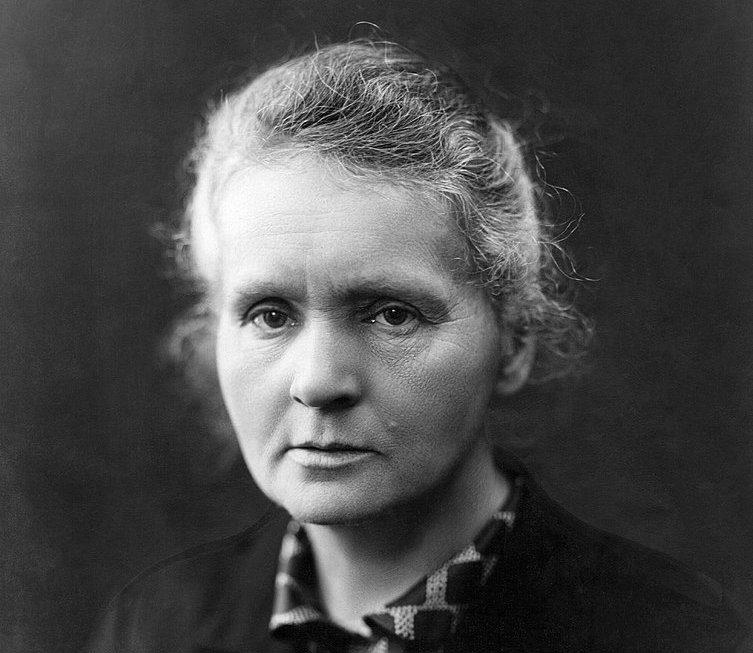 Henri Manuel, Wikimedia Commons
Henri Manuel, Wikimedia Commons
First Woman Elected to US Congress (1916)
Four years before women in the US were granted the right to vote, Jeanette Rankin became the first woman elected to Congress. She voted to extend the vote to women in 1920 and served for more than 60 years as an elected official.
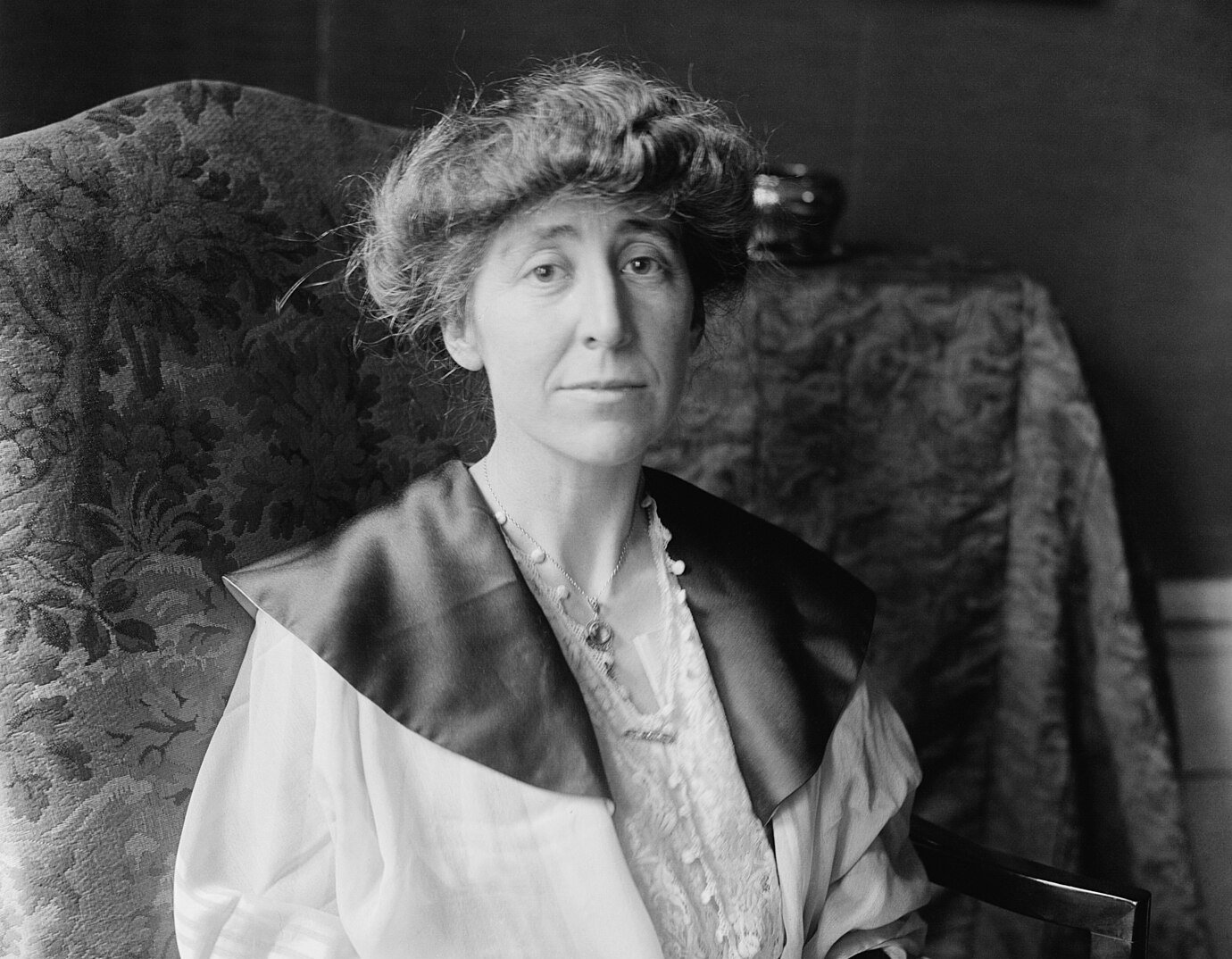 Adam Cuerden, Wikimedia Commons
Adam Cuerden, Wikimedia Commons
First 3D Movie (1922)
Not quite the excitement and technology of Avatar, the first 3D movie was a melodrama called The Power of Love. While we can’t imagine what sorts of things were jumping out of the screen at audiences, it’s amazing to think that 3D movies have been around for over a century.
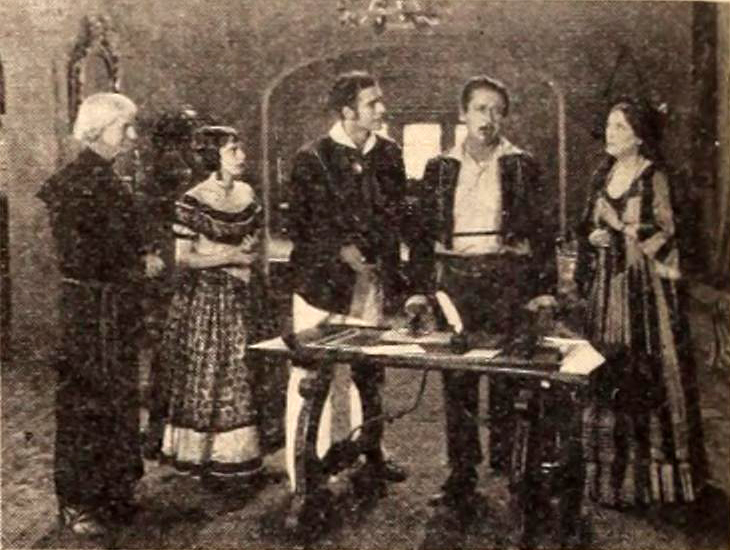 Internet Archive, Wikimedia Commons
Internet Archive, Wikimedia Commons
First Person To Reach Both Poles (1926)
Roland Amundsen must have really liked cold weather. In 1911, he journeyed to Antarctica and reached the South Pole the same year. 15 years later, he headed north and reached the North Pole, making him the first human to successfully travel to both poles.
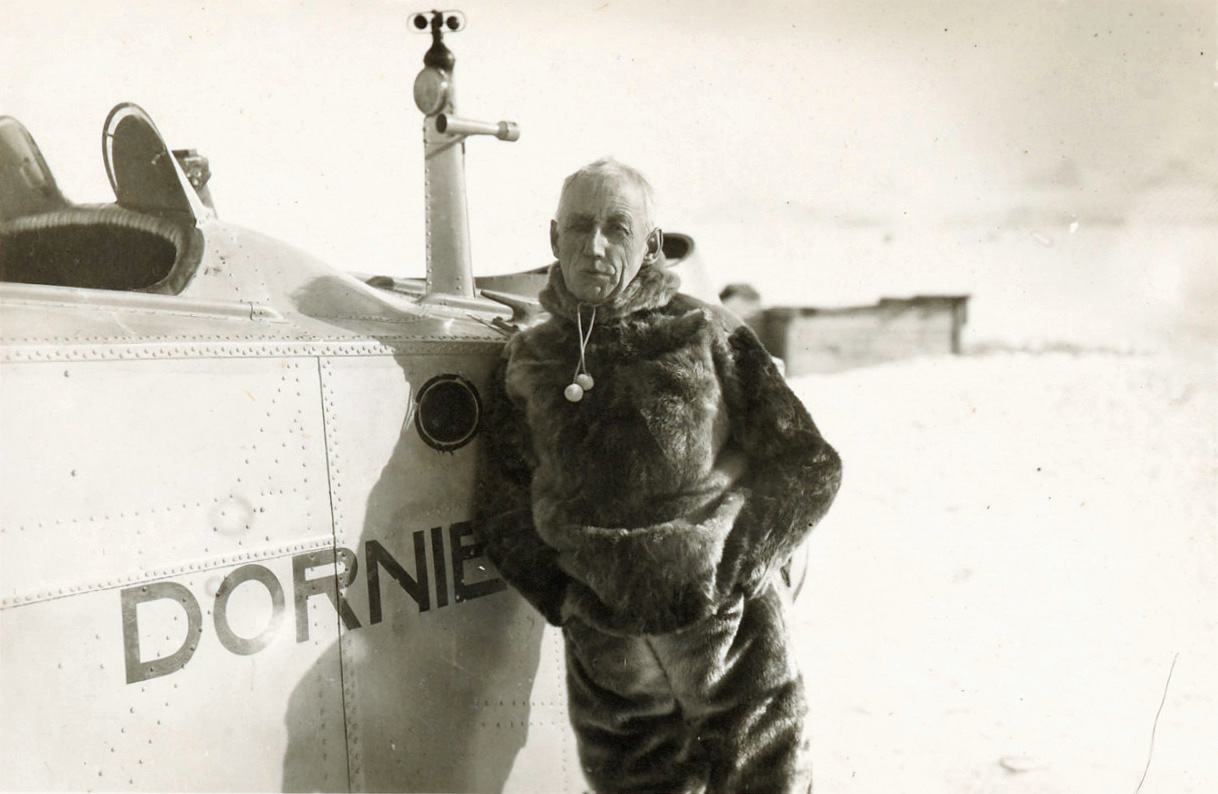 Preus Museum Anders Beer Wilse, CC BY 2.0, Wikimedia Commons
Preus Museum Anders Beer Wilse, CC BY 2.0, Wikimedia Commons
First Woman To Fly Solo Across The Atlantic Ocean (1932)
Chances are you’ve heard of Amelia Earhart, famous for having gone missing while trying to complete the first circumnavigation of the Earth by a female pilot. Before her infamous trip, she was also famous for being the first woman to fly solo across the Atlantic Ocean.
First Microwaved Food (1945)
If there is one food that will always be associated with microwaves, it’s that movie theater treat, popcorn! So it’s appropriate that all the way back in 1945, engineer Percy Spencer’s first successful use of microwaves to cook was with popcorn. His first unsuccessful attempt? Accidentally melting a chocolate bar in his pocket, which gave him the idea.
First Corporate Sponsorship On Television (1946)
For a brief, glorious time, streaming services seemed to have done away with having to sit through commercial breaks. While it’s not so anymore, the TV ad has a history stretching back to the 1940s, when Gillette sponsored the broadcast of a boxing match between Joe Louis and Billy Conn.
 Sharon Kuth, CC BY-SA 4.0, Wikimedia Commons
Sharon Kuth, CC BY-SA 4.0, Wikimedia Commons
First Television Sitcom (1946)
The sitcom and television rapidly became synonymous as TVs found their way into living rooms worldwide. The forerunner to such hits as Friends and Cheers was a BBC series called Pinwright’s Progress, about the smallest store in the world. We’re not sure what they sold.
 Bureau of Industrial Service, Wikimedia Commons
Bureau of Industrial Service, Wikimedia Commons
First Person To Break The Sound Barrier (1947)
Chuck Yeager is considered a pioneer in flying jet planes, and in 1947, he achieved a huge milestone in the history of flight. Yeager flew an experimental plane that reached the speed known as Mach 1, making him the first human to move faster than the speed of sound.
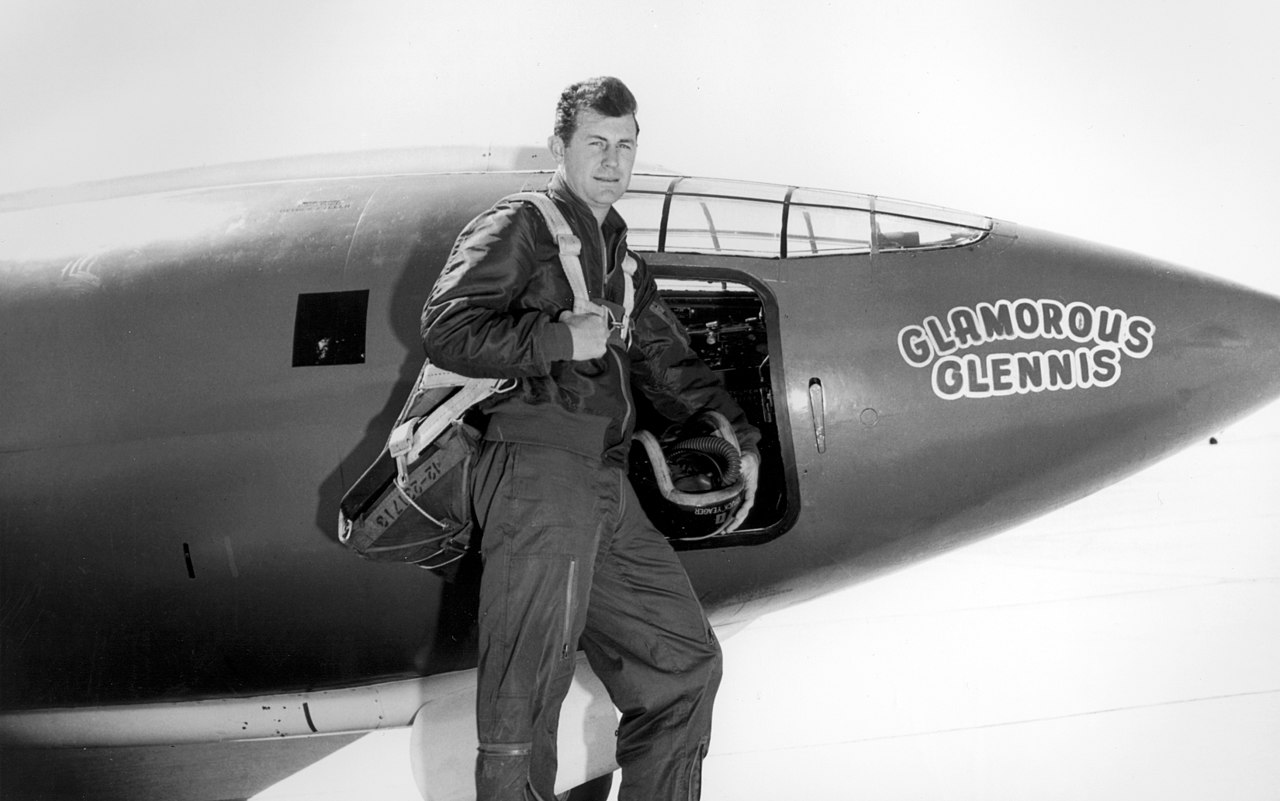 U.S. Air Force photo, Wikimedia Commons
U.S. Air Force photo, Wikimedia Commons
First Animal In Space (1957)
It’s easy to forget, sometimes, that the first creatures to escape the bonds of our planet were not the humans who built gravity-defying rockets. Laika, a small dog, was the first animal in space, flying aboard the Russian Sputnik 2. Sadly, she also passed away in space, marking another historic first.
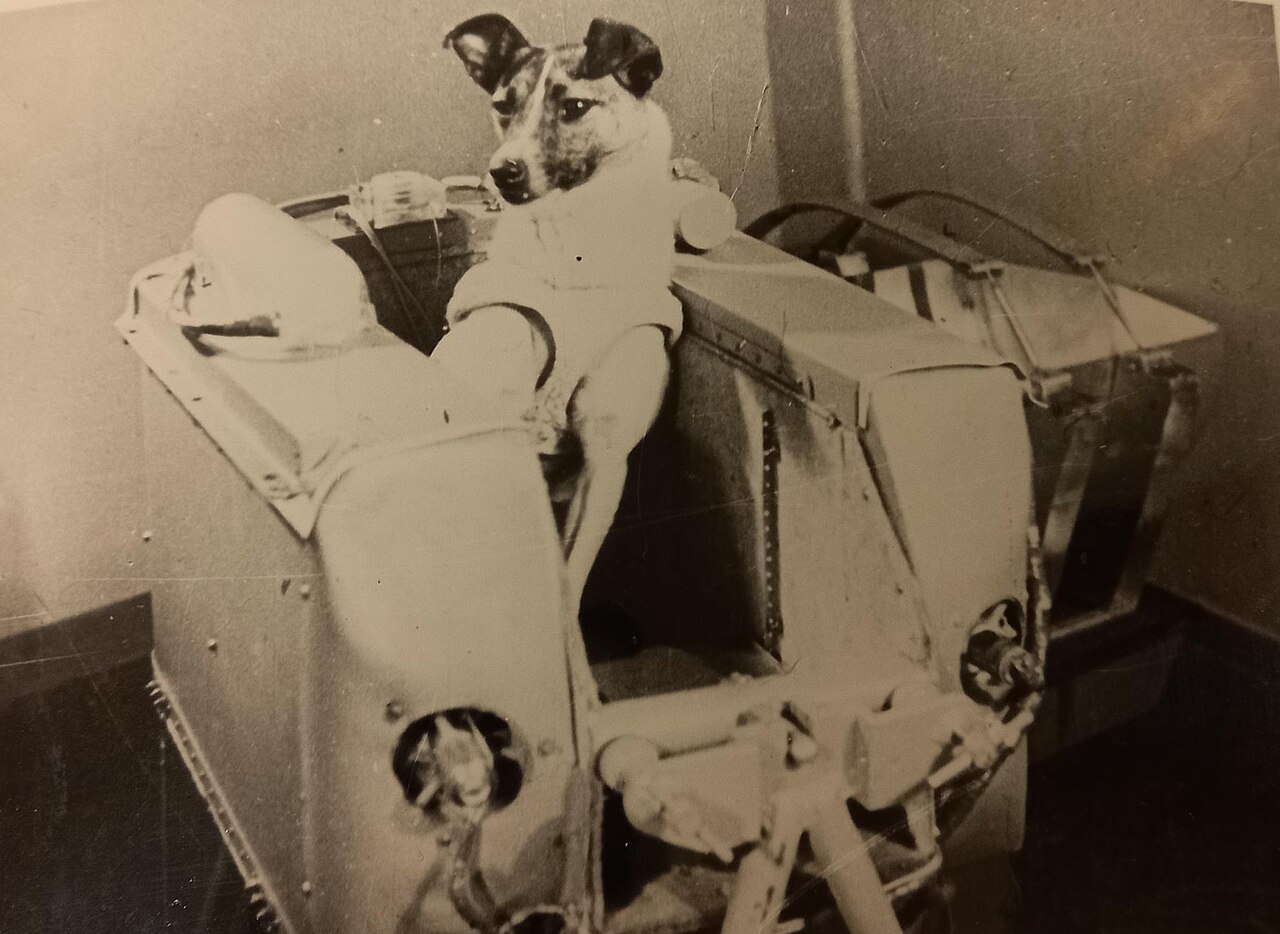 Uknown Artist, Wikimedia Commons
Uknown Artist, Wikimedia Commons
First Moon Landing (1969)
Conspiracy theorists, just go take a quick break or something while we cover this one. The first moon landing occurred on July 20, 1969. Neil Armstrong’s immortal speech as he became the first person to walk on a different world will live forever in human history.
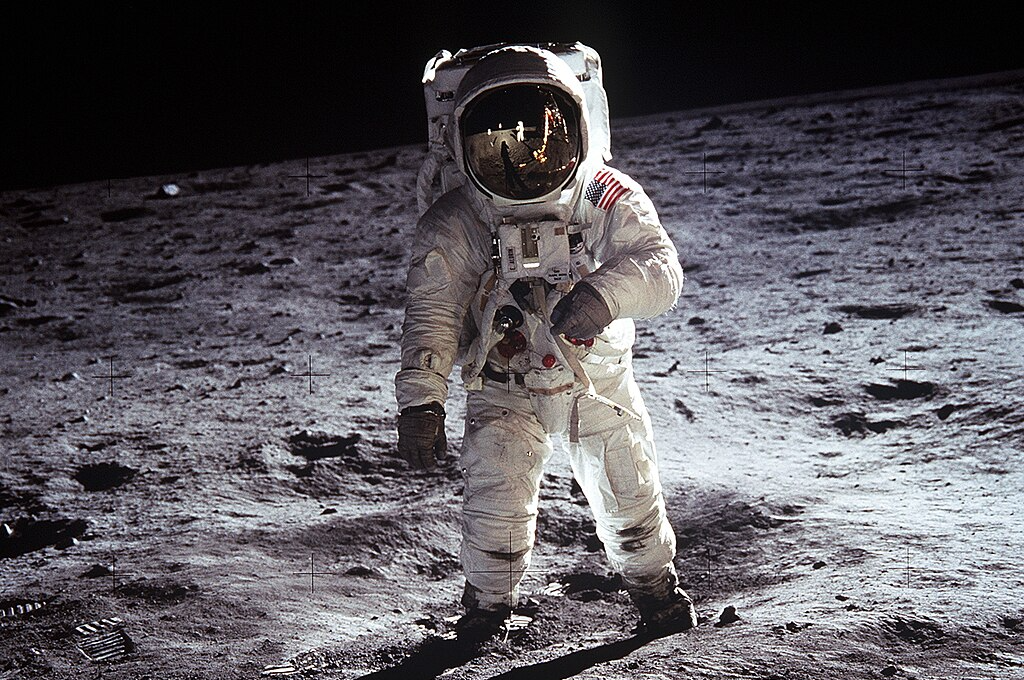 Neil A. Armstrong, Wikimedia Commons
Neil A. Armstrong, Wikimedia Commons
First Person To Score 1,000 Goals In Soccer (1969)
Even people who aren’t familiar with the game of soccer might recognize the name Pelé. Often called one of the greatest athletes to ever play the game, Pelé was also the first player to achieve the landmark of 1,000 goals in his career. He finished his soccer career with a whopping 1,281 goals.
First Video Game Console (1972)
Move over, Atari 2600. While you may have been the early face of gaming consoles, the title of first-ever goes to the Magnavox Odyssey. But don’t expect any open-world, hyper-realistic graphics. The Odyssey mostly played digital versions of sports. It retailed for the 1972 equivalent of about $500.
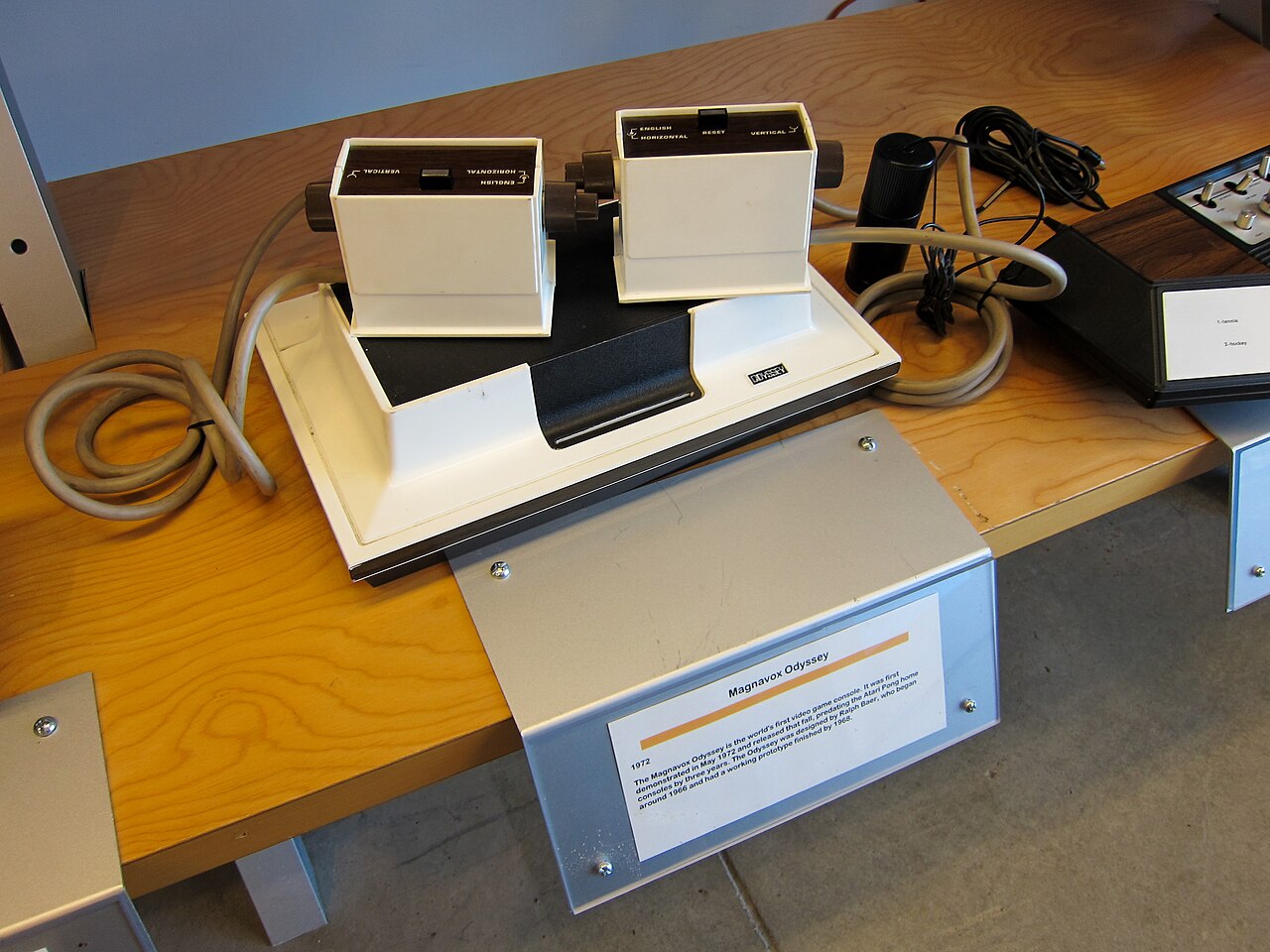 Jeff Keyzer, CC BY-SA 2.0, Wikimedia Commons
Jeff Keyzer, CC BY-SA 2.0, Wikimedia Commons
First Cell Phone Call (1973)
Cell phones in 1973? And this was back when cell phones were actually used as phones! Martin Cooper made the first cell phone call standing outdoors in Manhattan over 50 years ago. He called a colleague in New Jersey, and the first thing he asked was if the call sounded okay. The more things change…
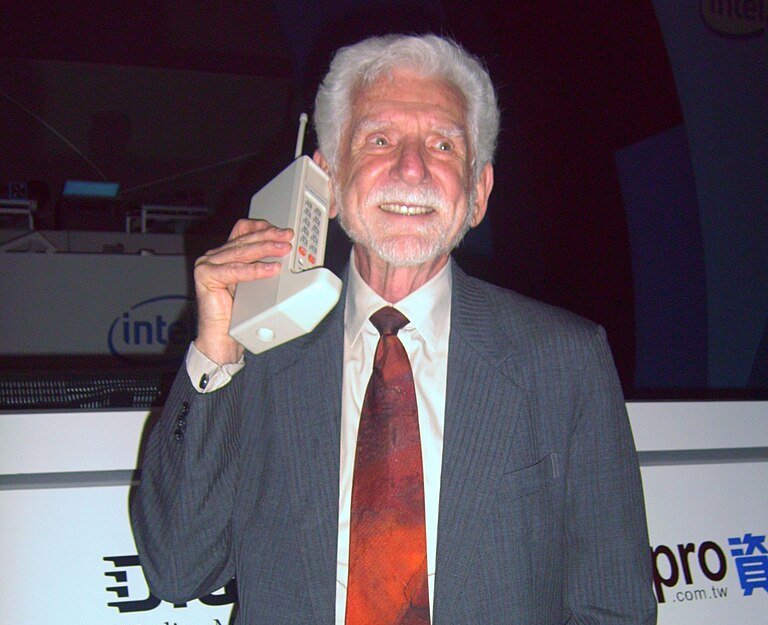 Rico Shen, CC BY-SA 3.0, Wikimedia Commons
Rico Shen, CC BY-SA 3.0, Wikimedia Commons
First Reality TV Show (1973)
No, it wasn’t Survivor, though that’s certainly the show that popularized the format. The first recognized reality TV show was a 1973 documentary series for PBS called An American Family. The show chronicled the lives and troubles of a seemingly ordinary family.
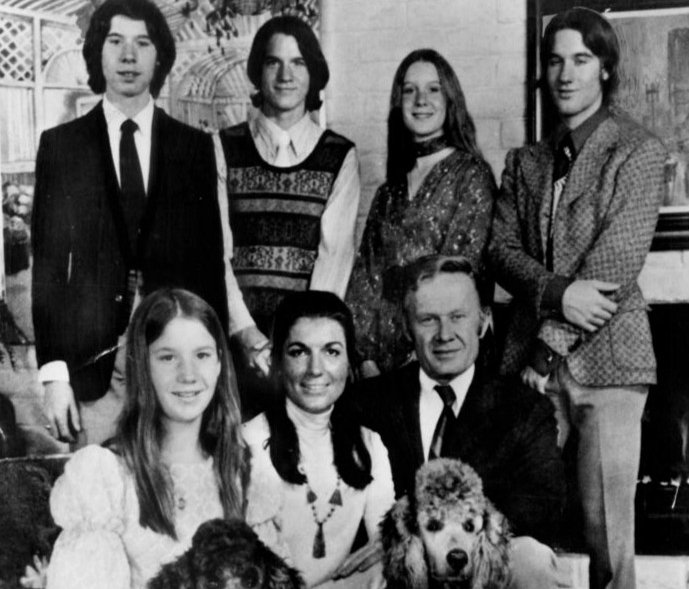 PBS-Public Broadcasting System, Wikimedia Commons
PBS-Public Broadcasting System, Wikimedia Commons
First Person To Walk Around The World (1974)
If you think your walk to school or work is a long one, consider Dave Kunst. Four months after leaving Waseca, MN, heading east, he re-entered the town from the west, having just walked right around the Earth. Minus, of course, the oceans.
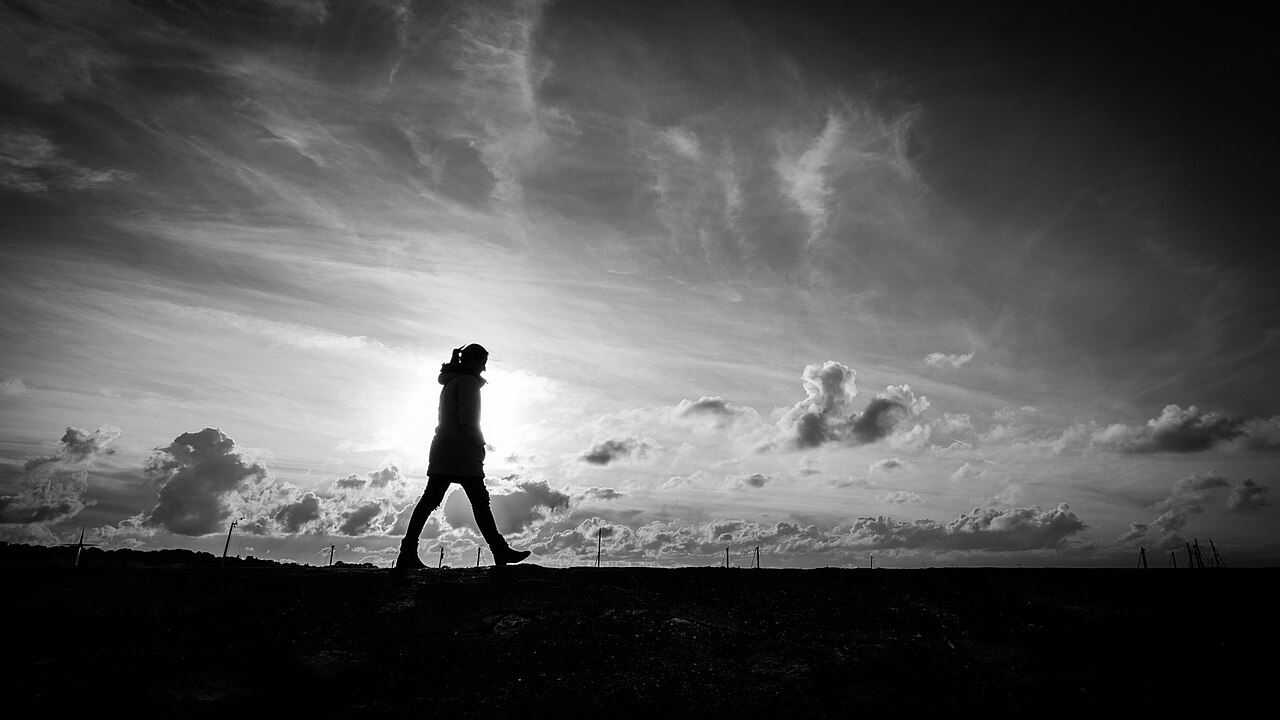 Giuseppe Milo, CC BY 3.0, Wikimedia Commons
Giuseppe Milo, CC BY 3.0, Wikimedia Commons
First Text Message (1992)
While the first cell phone call may have been in 1973, it took almost 20 years for cells to start being used for the function that makes up most of our communication these days: text messages. Neil Papworth sent Christmas greetings in the first-ever SMS message in 1992.
 MicroZesTo, CC BY-SA 3.0, Wikimedia Commons
MicroZesTo, CC BY-SA 3.0, Wikimedia Commons
First Darwin Award Winner (1993)
If the Nobel prize is awarded for incredible feats of discovery and knowledge, the Darwin Awards are their opposite. They are given to people who display what can only be called the stupidest behavior. The first Darwin, way back in 1993, was posthumously awarded to a man who was crushed while trying to steal soda from a vending machine.
 Choo Yut Shing, CC BY 2.0, Wikimedia Commons
Choo Yut Shing, CC BY 2.0, Wikimedia Commons
First Military Combat Robots (2002)
So we’re just going to ignore the warnings of The Terminator or The Matrix, we guess? In 2002, grenade launcher and shotgun-wielding robots were first used in combat, mainly to clear cave complexes that were deemed too risky for human soldiers.
First Giant Squid To Be Captured (2004)
Contributing to the idea that the oceans contain so many things we’ve never seen, the first proper evidence of a giant squid was only procured about 20 years ago. Although the creatures had been reported, “Archie” the squid, captured in fishing nets, was the first physical evidence of the creature.
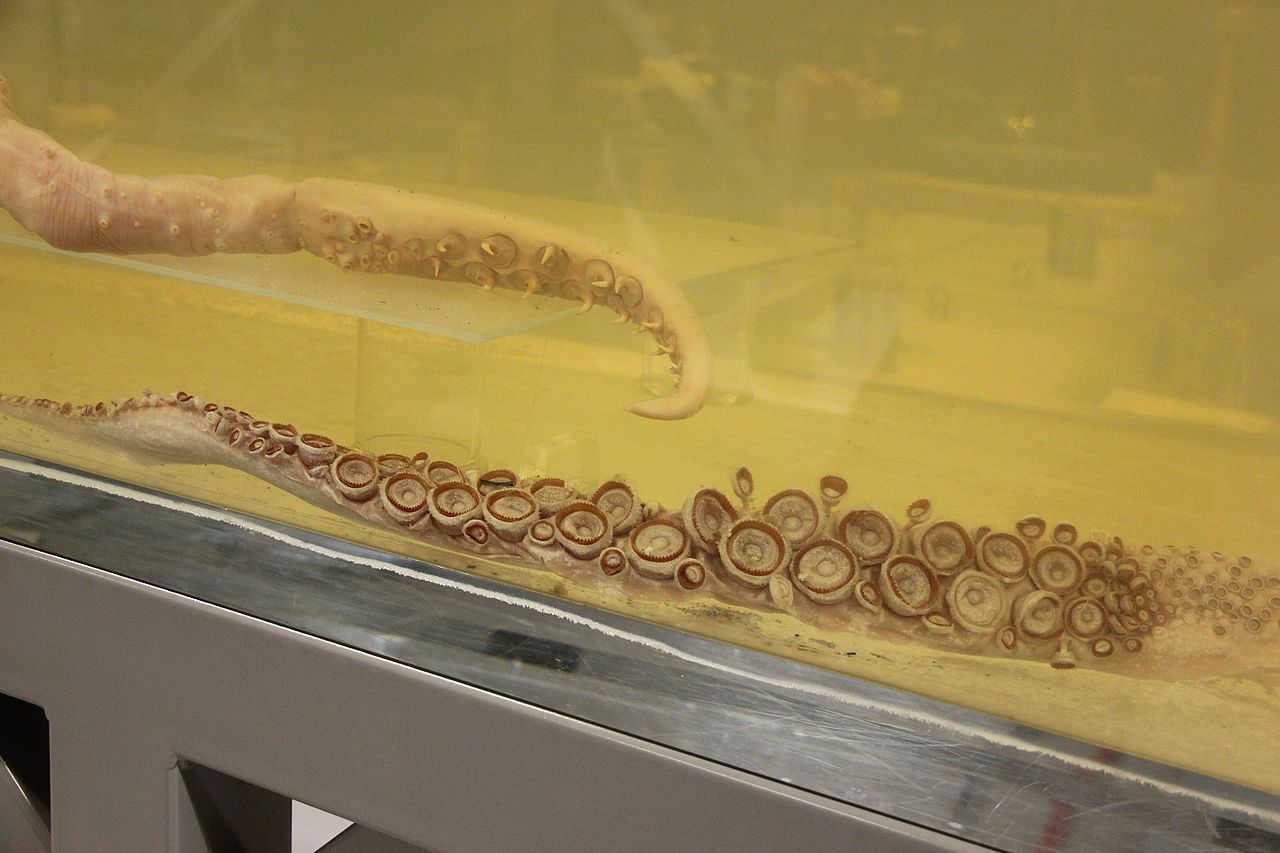 Laika ac, CC BY-SA 2.0, Wikimedia Commons
Laika ac, CC BY-SA 2.0, Wikimedia Commons
First YouTube Video (2005)
Some younger readers may have trouble conceiving of a time before YouTube. But it existed. In fact, YouTube has only been streaming content to us for less than 20 years. The first 18-second video was a riveting explanation by a young boy telling viewers that elephants have long tusks. Go have a look to see if “Meet me at the zoo” is still around.
First “God Particle” Discovered (2012)
The “God Particle” is a particle theorized to affect, and be affected by, many of the fundamental forces of the Universe. Scientists have included the particle, known as the Higgs boson, in theoretical models for decades, and 12 years ago, CERN’s Large Hadron Collider observed the first evidence of its existence.
First Person To Survive A Trip Over Niagara Falls (1901)
People certainly do some strange things, and throwing yourself over one of the largest waterfalls on the planet definitely qualifies. Many people have gone over Niagara Falls in the last hundred or so years, but the first to survive was Annie Edson Taylor, in a barrel, at the tender age of 63!
 Saffron Blaze, CC BY-SA 3.0, Wikimedia Commons
Saffron Blaze, CC BY-SA 3.0, Wikimedia Commons

